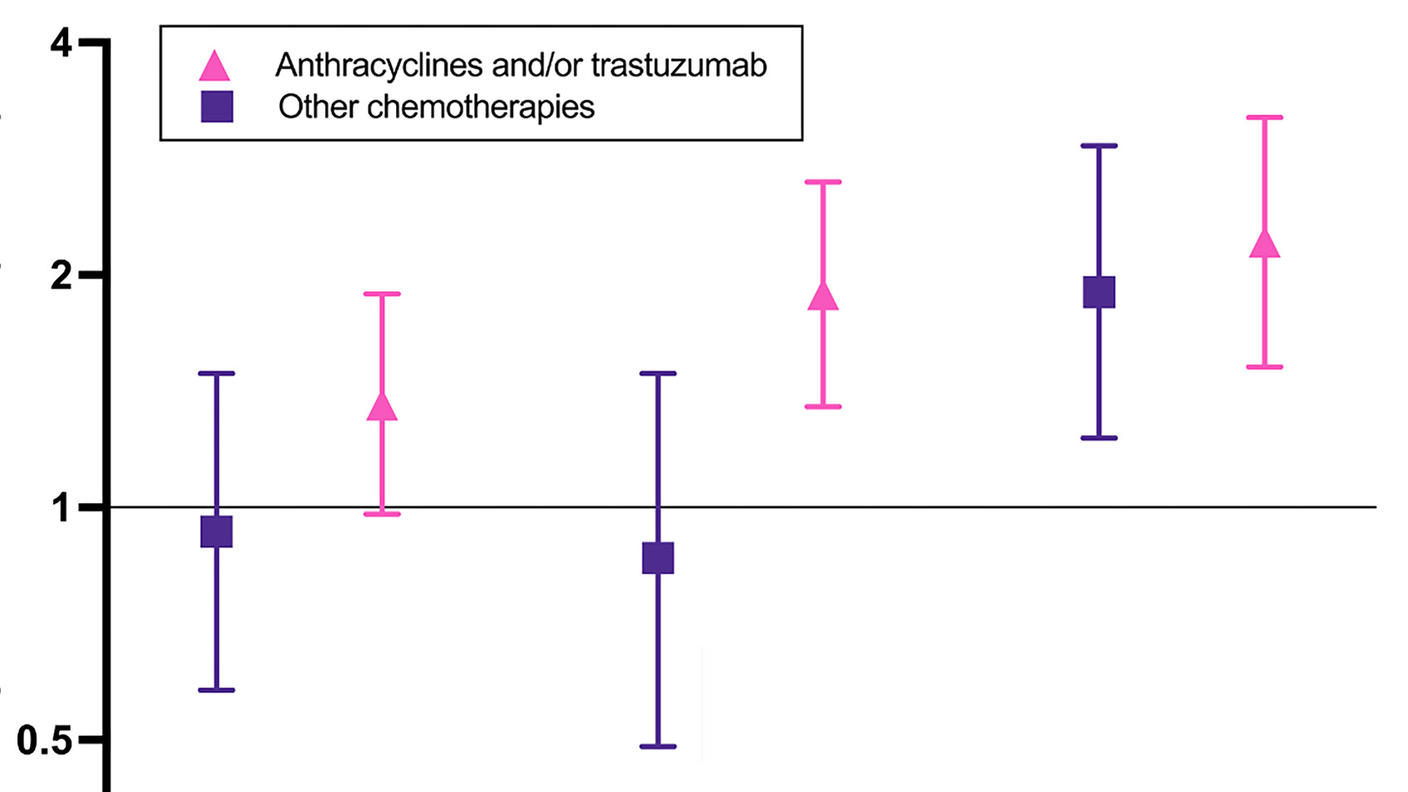Overview
The Kaiser Permanente Breast Cancer Survivors Cohort was initiated as a transdisciplinary resource to investigate cancer treatment patterns over time and the risk of second cancers, cardiovascular disease, and mortality.
The study is a retrospective record-linkage cohort with prospective follow-up of over 22,000 women diagnosed with a first primary breast cancer between 1990-2020, with follow-up through 2021.
Study Team
Co-Principal Investigators
Gretchen Gierach, Ph.D, M.P.H., Branch Director and senior investigator, Integrative Tumor Epidemiology Branch (ITEB)
Investigators
Choonsik Lee, Ph.D., Dosimetry Unit Head and senior investigator, REB
Mustapha Abubakar, M.D., Ph.D., Earl Stadtman investigator, ITEB
Ruth Pfeiffer, Ph.D., senior investigator, Biostatistics Branch
Staff scientists
- Lene H. S. Veiga, Ph.D., REB
- Rochelle E. Curtis, M.A., REB
- Matthew M. Mille, REB
Fellows
- Quiera S. Booker, Ph.D., M.P.H., ITEB
Branches
Integrative Tumor Epidemiology
Radiation Epidemiology
Biostatistics
Collaborators
Cancer Survivorship Research Unit (CSRU)
Colleagues at multiple Kaiser Permanente Study Centers
Background & Purpose
Advances in treatment have contributed to improved breast cancer survival rates now at 90 percent. Combined with increasing breast cancer incidence rates since 1990, this has resulted in nearly four million breast cancer survivors currently living in the U.S., representing >20 percent of all cancer survivors. Although breast cancer survivors are living longer, they have a substantially increased risk of second cancer and cardiovascular disease compared with the general population, as a result of cancer treatments including chemotherapy, radiotherapy, and endocrine therapy.
The Kaiser Permanente Breast Cancer Survivors Cohort was initiated as a transdisciplinary resource in 2011 and links data from multiple Kaiser Permanente study centers. Current efforts are underway to increase racial diversity and support cohort expansion.
See all DCEG research on breast cancer and survivorship.
Study Design
The study is a retrospective record-linkage cohort with prospective follow-up of over 22,000 women diagnosed with a first primary in-situ or invasive breast cancer between 1990-2020, with follow-up through 2021.
The cohort links data from electronic medical records, pharmacy and prescription files for detailed cancer treatment, cancer registry, and the National Death Index, to investigate trends in breast cancer treatment practices over time, treatment-related second cancers, and treatment-related cardiovascular disease and mortality.
Select substudies include detailed data from mammograms, tissues, and radiotherapy summaries.
Study Results & Select Publications
Breast cancer patients who received radiotherapy, had breast-conserving surgery, and had a history of hypertension or diabetes at the time of their breast cancer diagnosis had elevated risks for thoracic angiosarcoma.
Mammographic breast density (MBD) may be an important consideration for women diagnosed with estrogen-receptor positive breast cancer. Patients who experienced large reductions in MBD following tamoxifen treatment had improved prognosis. The potential translational implications of this work were recently highlighted in a Journal of Clinical Oncology.
Select Publications
Vo JB et al. Long-term cardiovascular disease risk after anthracycline and trastuzumab treatments in U.S. breast cancer survivors. J Natl Cancer Inst. 2024.
Raman C et al. Risk of second primary cancer among women in the Kaiser Permanente Breast Cancer Survivors Cohort. Breast Cancer Research 2023.
Veiga L HS et al. Treatment-related thoracic soft tissue sarcomas in US breast cancer survivors: A retrospective cohort study. The Lancet Oncology 2022.
Ramin C et al. The influence of treatment on hormone receptor subgroups and breast cancer-specific mortality within US integrated healthcare systems. Cancer Causes Control 2022.
Abubakar M et al. Mammographic Density Decline, Tamoxifen Response, and Prognosis by Molecular Characteristics of Estrogen Receptor-Positive Breast Cancer. JNCI Cancer Spectr. 2022.
Aiello Bowles EJ et al. Endocrine therapy initiation among women with stage I-III invasive, hormone receptor-positive breast cancer from 2001-2016. Breast Cancer Res Treat. 2022.
Spencer Feigelson H et al. Body Mass Index and Risk of Second Cancer Among Women With Breast Cancer. J Natl Cancer Inst. 2021.
Gierach GL et al. Association of Adjuvant Tamoxifen and Aromatase Inhibitor Therapy With Contralateral Breast Cancer Risk Among US Women With Breast Cancer in a General Community Setting. JAMA Oncol. 2017.
Nyante SJ, et al. Prognostic significance of mammographic density change after initiation of tamoxifen for ER-positive breast cancer. J Natl Cancer Inst 2015.
Mullooly M, et al. Mammographic density as a biosensor of tamoxifen effectiveness in adjuvant endocrine treatment of breast cancer: Opportunities and implications. J Clin Oncol 2016.
See all publications from the Kaiser Permanente Breast Cancer Survivors Cohort.


